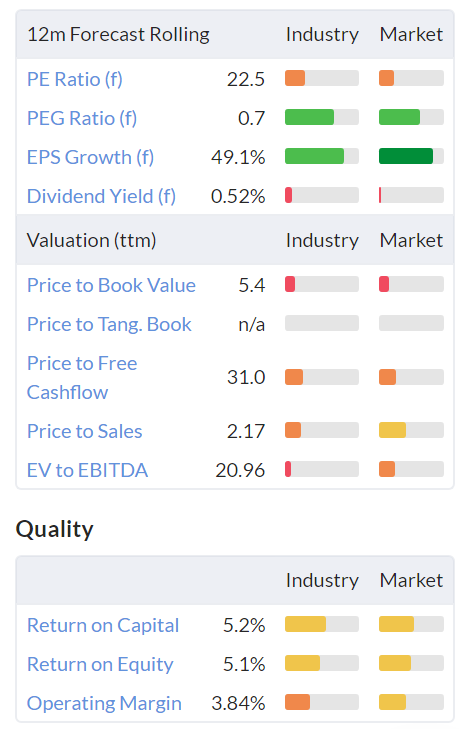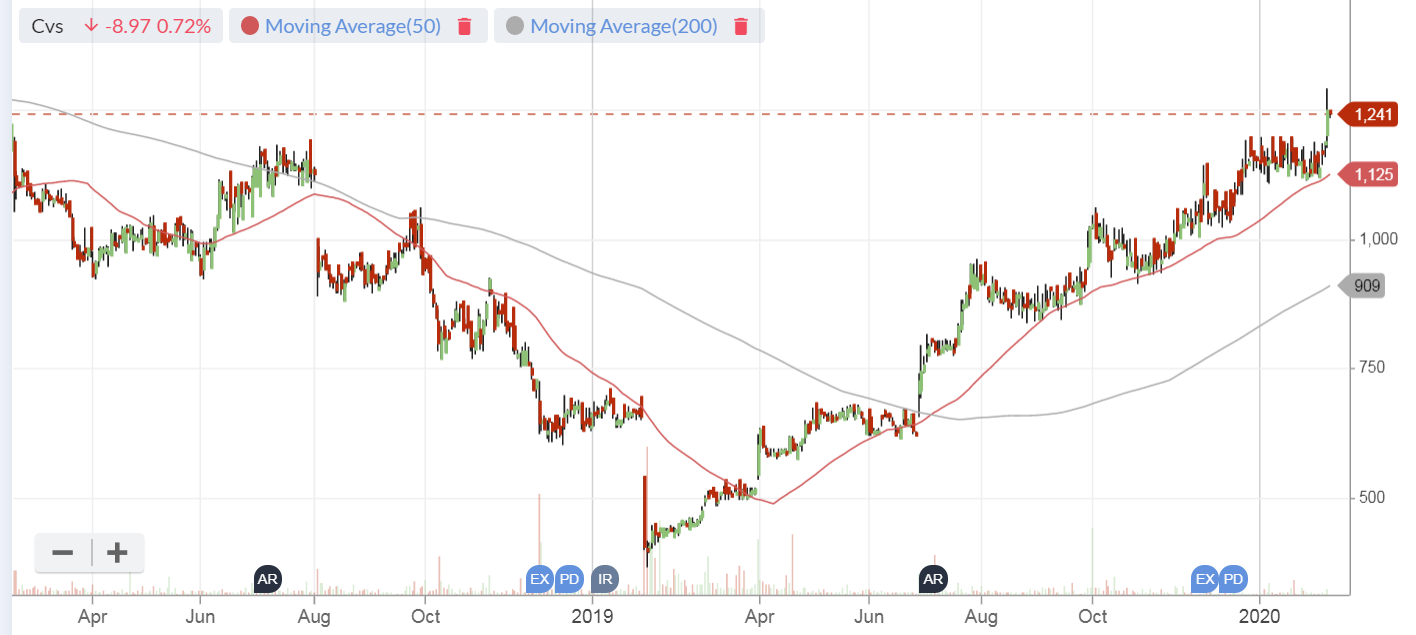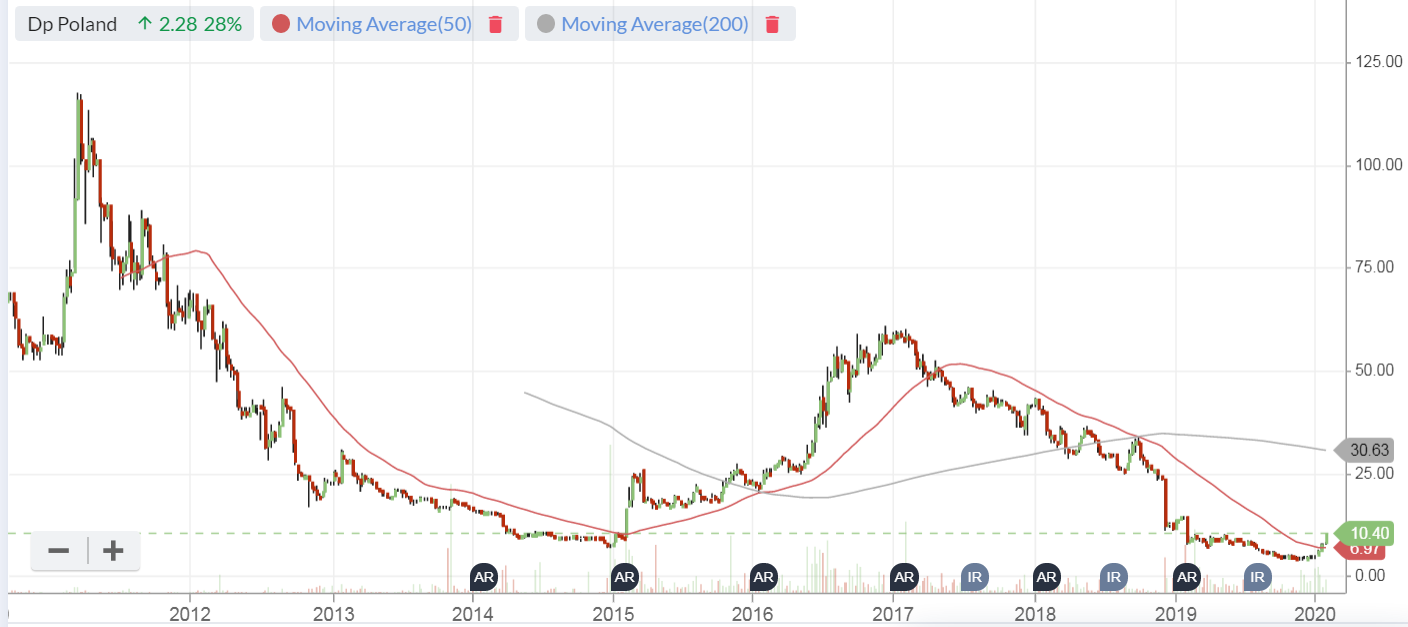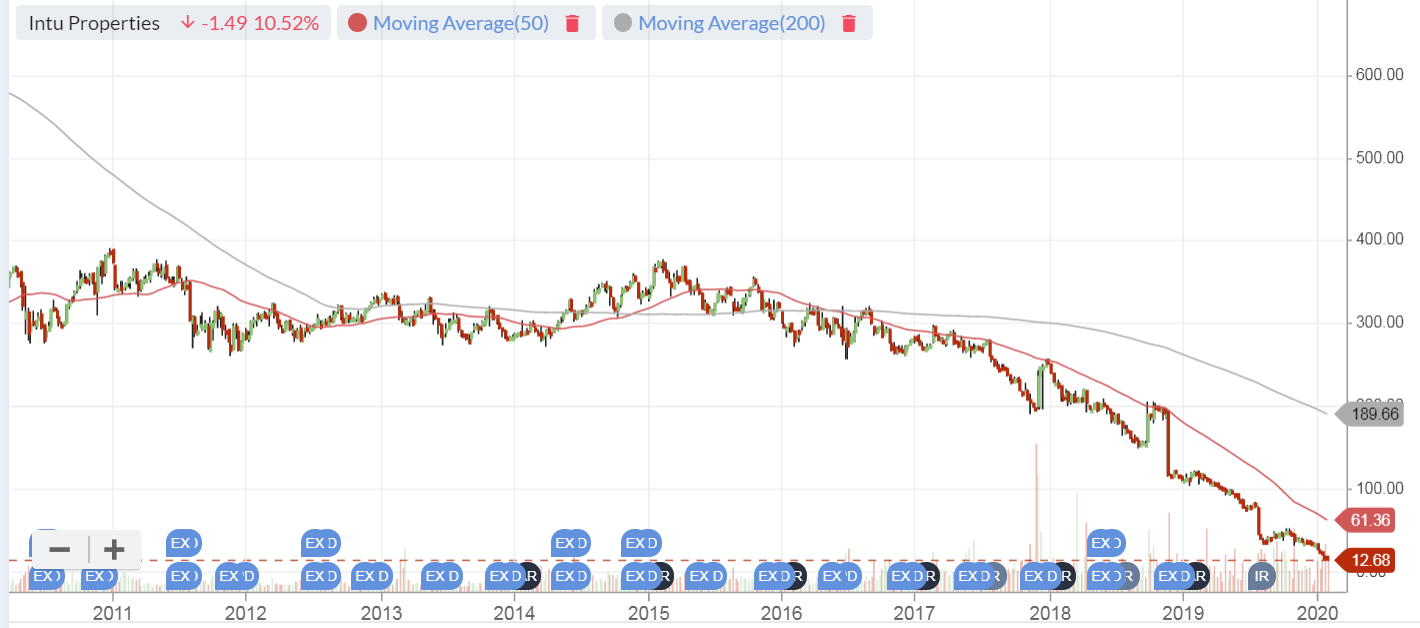Good morning, it’s Paul here, with Friday‘s SCVR.
As usual on a Friday, it's quiet for news. So once I've covered today's news, I'll use the spare time to do some general market ramblings - I've been jotting down points of interest throughout the week, so have plenty of material.
Estimated time of completion - should be well before 1pm , the official finish time (when the emails are sent out).
EDIT at 13:06, sorry I got bogged down in something else (preparing for a company conf call), so am running a bit late. Should be done by 13:30
EDIT at 13:24 - today's report is now finished.
CloudBuy - cancellation - we bid a tearful goodbye to this absolutely hopeless micro cap, which burned cash and delivered nothing to shareholders over many years. Its incoherent boss is remembered by me & several of my friends for having given the worst investor presentation in living memory. He couldn't even explain what the business did. Nice enough chap though, but quite obviously uninvestable.
I can think of a couple of hundred similar companies on AIM that should de-list. When are brokers going to actually float some decent companies? They're killing the UK small caps market by floating far too much junk. A fresh approach is needed.
Countrywide (LON:CWD)
A rather concerning announcement has been issued this morning. Struggling, highly indebted estate agents, CWD announced late last year that it was selling a non-core commercial property division, called Lambert Smith Hampton, for £38m. This would have considerably strengthened its very weak balance sheet (NTAV was negative, at -£141.8m as at 30 June 2019).
The buyer, John Bengt Moeller (described as a Monaco-based property developer, from a google search) hasn't come up with the dosh. Hence completion has been delayed,
"... due to logistical difficulties relating to the transfer of the requisite completion monies"
That's a very unusual, and worrying turn of events. It might all get sorted out, or it might not, who knows? I would expect to see the share price take a tumble today, as the risk of the deal falling through needs to be priced-in.
Cvs (LON:CVSG)
Share price: 1234p (down 1.2% at 08:50 )
No. shares: 70.65m
Market cap: £871.8m
CVS, one of the UK's leading providers of integrated veterinary services, provides the following update on headline trading in respect of the financial half year ended 31 December 2019 ("H1 2020"). The Company will announce its interim results, for the six months ended 31 December 2019, on 27 March 2020.
"Improved trading performance" has continued in H1.
Total sales (including acquisitions) up 15.0%, and LFL sales up a very impressive +8.4%
Gross margin figures look high, at 76%, but this doesn't look a meaningful figure to me, since the group is mainly providing veterinary services, not goods. This 76% figure doesn't seem to include salaries, hence I don't see why it is relevant.
Employment costs are 51.0% of total sales, down from 51.6% in H1 LY.
Put it all together and the overall H1 outcome is "materially above" last year, but despite the upbeat tone, only "in line with management expectations".
Outlook - again, only in line, and this suggests the superb LFL sales growth might now reduce;
As previously stated, the comparatives become more challenging in the second half of the current financial year, given the improved performance seen in H2 2019. The continuing positive trends in key performance indicators provide further assurance that the Group is trading in line with management's expectations for the full year.
That's fine, and it sounds like there is little risk of a profit warning.
Bank facilities - renewed from Nov 2021 to Jan 2024. Total facilities reduced from £195m to £175m. I would have liked to see a comment that facilities had been agreed on cheaper terms, but nothing is said about that.
I did worry previously that the group was over-geared, and its balance sheet too weak. However, on reviewing the last published accounts, I've changed my mind on this. Whilst the balance sheet is indeed weak, with negative NTAV of £-81.4m at 30 June 2019, there is a good argument that a highly cash generative business can comfortably carry some debt. Also the focus is on reducing the pace of acquisitions, to pay down some of the debt.
Top marks for clarity, in also providing information on bank covenants. The key net debt: EBITDA covenant looks OK at 1.71 as at 31 Dec 2019 (down from 2.08 at 30 June 2019). Personally I like to see Net Debt at about 1x EBITDA maximum, to be comfortable.
Valuation - here are the usual Stockopedia growth & value graphics;

Acquisition accounting
Why are the quality measures above low for CVSG? It's because Stockopedia uses the most conservative accounting basis, in that it includes the impact of amortisation of intangibles. This has the effect of penalising groups which make a lot of acquisitions. It famously enraged David Hornsby of Ideagen (LON:IDEA) at Mello a couple of years ago, who (understandably) thinks this basis penalises his share. They work out their own ROCE and ROE calculations to strip out intangibles, giving much higher figures.
On balance I have a lot of sympathy for Ideagen's way of looking at things. After all, if company A and company B are identical in every respect other than that company A grew organically, and company B grew by acquisition, then why should the ROCE and ROE figures differ? They shouldn't, they should be the same. Company B bought in the goodwill and has it shown on the balance sheet and amortised as a cost through the P&L. Whereas company A has the same amount of internally generated goodwill, but it's not shown on the balance sheet at all, and isn't put as a cost through the P&L. This is clearly nonsensical. Hence why the generally accepted approach is to strip out goodwill assets & costs, to make companies comparable on an underlying basis.
My view is that it's useful to have goodwill & amortisation figures shown in the accounts, so that we can evaluate whether the company is adding, or destroying value with its acquisitions. Once we've checked that out, the next step is to eliminate all the goodwill & amortisation figures, to look at the underlying business, and decide how it should be valued.
Therefore there is no right or wrong about this. We actually have to think about both sets of figures - with and without the acquisition accounting. For that reason, I think Stockopedia should be modified, to work out two sets of quality scores - one with, and one without the acquisition-related accounting entries.
If we have to have just one set of quality figures, then I would prefer us to have the adjusted numbers, not the statutory numbers - i.e. I think Stockopedia should probably change its calculation of quality scores to using adjusted numbers. As things currently stand, the quality scores will unduly penalise acquisitive groups. That's just my opinion though, and this issue can be argued either way. I think Graham prefers the more conservative accounting figures.
Although note CVSG actually has a good Stockopedia quality rank of 72.
Ideagen (LON:IDEA) actually has a very high Stockopedia quality score, of 91, despite its only medium quality metrics shown on the StockReport. I queried this with Ed a while back, and IIRC he said that the Stockopedia quality rank doesn't just rely on the quality metrics shown on the StockReport, but uses a whole load of other factors. A full explanation is given here. It is all a bit confusing!
I think the conclusion is this - even though the ROCE, ROE and operating margins shown on each StockReport will penalise acquisitive groups, the Quality Rank (part of the StockRank system) does not penalise acquisitive groups.
My view on CVSG
I missed a trick on this one. On reflection, the plunge to a low of 402p at end Jan 2019 would have made a cracking buying point, for a good quality business. Its share has tripled since then, so I wouldn't buy at this stage, now the valuation is well up with events at a PER of 22.5.
The share price appreciation has mainly been driven by the rating going from too low (PER of about 10 a year ago), to maybe now too high, at 22.5.
Earnings forecasts for FY 06/2020 have only risen a fairly modest amount, from 43.5p at the low point in Feb 2019, to 53.88p now. So a relatively modest 24% increase in forecast earnings, has triggered a c.200% rise in share price - that's too much, and I think demonstrates that we're now back in a very frothy market, where a lot of shares have risen to stretched valuations, and we all know what happens next when the market gets like that - sooner or later there's a sharp correction.
Overall then, CVSG is a good business, but I think the big rise in share price over the last year has now taken it to a full valuation, hence I wouldn't be interested in buying now it's fully/over valued.
Checking back to Jan 2019, the profit warning which triggered the plunge to c.400p was quite a big deal at the time. Graham wrote about it here, saying that it looked like the acquisition strategy had gone wrong, as it appeared to have done at the time. Plus debt levels looked too high.
All credit due to management then, in having turned it around in the last year. Looking back to Jan 2019, I don't think it was obvious at all that the share would be a 3-bagger in the next year. So we don't need to beat ourselves up too much about missing this one.

Dp Poland (LON:DPP)
Share price: 10.5p (up 23 %, at 10:49)
No. shares: 253.6m
Market cap: £26.6m
Trading Update (full year 2019)
DP Poland, through its wholly owned subsidiary DP Polska S.A., has the exclusive right to develop, operate and sub-franchise Domino's Pizza stores in Poland. There are currently 69 Domino's Pizza stores across 29 cities and towns, 43 corporately managed, 3 under management contract and 23 sub-franchised
The share price is up 23%, so has something game-changing happened? In a word, no.
2019 results are in line with management expectations, which means another year of losses - circa £3m loss is what we've got on the StockReport.
The only thing that could turn this dismal, constantly loss-making business into something viable, would be very large increases in LFL sales, which isn't happening. Let's look at that;
H1 2019: LFL -1% (blamed on tough PY comparative when TV ads were run)
H2 2019: LFL +6% (driven by "well-received marketing campaign, strong digital presence and reputation for quality/service)
Continued impact of competition & higher labour costs
My opinion - this is not a viable business, as I've repeatedly pointed out over many years. That remains the case.
A loss-making business that is struggling with cost inflation and competitive pressure, is surely something to very obviously avoid as an investment?
I'm staggered that investors keep putting money into this, when it so obviously hasn't worked, and isn't likely to work in future.
July 2020 will be DPP's 10th anniversary of its listing on AIM. In that time shareholders have put in £38m in equity (Called up share capital of £1.25m, plus £36.8m share premium account, at the bottom of the balance sheet). Of that £38m, c.£24m has disappeared in losses, and £14m NAV is left on the last balance sheet, most of which wouldn't have any realisable value (e.g. £6.5m in PPE). At what point do investors recognise that this just isn't working?
The clock's ticking here. If it can't move towards breakeven soon, then I doubt investors will want to replenish the bank account yet again, for more money to be squandered.
I think the equity value here is close to zero, based on current performance & trends.
Every now and then, a fresh batch of investors are persuaded that the tide is turning, but as you can see below, these have been false dawns. I would potentially have a small punt at say 2p per share, with fun money that I could afford to lose, but certainly not at 10.5p, which is absurdly over-valued at £26.6m mkt cap.

Simon Thompson tips
It's interesting to see a flurry of activity, and 10-15% price rises in a basket of stocks tipped by the excellent Simon Thompson in Investors Chronicle today. Simon is a good stock picker, with a good track record mostly. Like everyone he's had some clangers, which to be fair to him, were when he was too trusting and got sucked into frauds like Globo and Chinese AIM shares. We're a bit more streetwise here at the SCVR. I think the only fraud of recent years which slipped past us, was Patisserie Valerie, but I don't know anyone who correctly identified that one as a fraud beforehand. We were perplexed about its high margins, but never imagined it was actually a fraud, because it was Luke Johnson's company.
In the past, I've generally found it a good idea to top slice some of my position when it spikes up on a Simon Thompson tip, which I've done with Cenkos Securities (LON:CNKS) this morning, selling half. The reason being, that people who buy on magazine tips don't usually know what they're doing, flit from one thing to the next, get bored very quickly, and the price then drops back down again a few weeks after the original spike up. Plus, other investors are likely to use the liquidity created by the tip to offload some too. Also, my position size in Cenkos was a bit too large, so I was happy to sell some, to bring it back into line with other smallish positions of mine.
So, I owe Simon another beer!
My latest views on coronavirus
I feel the markets are being far too complacent about this.
On the one hand we know that disruption is only likely to be temporary, and markets supposedly look through temporary issues. But the trouble is, they don't look through profit warnings in practice, especially not illiquid small caps - any bad news, and the price goes down, even if only one or two people sell. If lots of people try to sell at the same time, then we're into 30-50% price fall time territory.
Main investment risks;
- Travel companies - the more outbreaks we see, then the more fearful people are likely to become about travelling, be it on business, or for holidays. For this reason, I'm not holding, or buying, anything travel-related.
- Supply chains - more on this below
Hedging
We don't have to hedge. The options as I see it, are;
- Do nothing - hold existing shares and ride out any potential downturn. This is what I am doing with my long-term, ungeared portfolio (a SIPP)
- Sell or part-sell some existing holdings, to increase cash held - a perfectly sensible option, especially if we've got positions which are looking toppy in terms of valuation (which many shares are at the moment) - I think this makes a lot of sense because it protects capital against downside risk
- Hedging - everyone has different ideas on this. I botched my initial, rushed attempt at hedging by shorting the Dow, which on reflection was pretty stupid. I've closed that now, but retained my short on the Hang Seng Index. That's around breakeven now, and it seems a sensible hedge for the specific risk of coronavirus getting a lot worse.
Other hedges which make sense to me are shorts on specific, travel-related shares. It feels bad doing this, but we can't just ignore the risk. The obvious one to me is;
Cruise ships
Carnival (LON:CCL) in particular (I'm short). People on cruise ships that are being quarantined, are posting videos on social media. I cannot think why anyone would want to book a cruise now, knowing that if anyone on the ship falls ill, then the entire ship could be quarantined for 14 days. Basically people are imprisoned for a fortnight on the ship, not allowed to leave their cabin. That would obviously be a nightmare.
A friend called them "giant floating petri dishes", which is apt. Disease outbreaks already happen, quite frequently on cruise ships, but this seems a lot worse potentially. I know Howard Marx will probably pop up and prove that I'm being illogical and alarmist, and he might be right, but people make decisions based on sentiment. Nobody has to book a cruise, and if in doubt, they may not do so. Therefore I foresee potentially big, albeit temporary problems, for cruise operators. With high fixed costs & lots of debt, that's not going to be good for the share price, at least in the short term.
Airlines
Again, look very vulnerable to me. I've shorted a couple.
Supply chains
We're already seeing press articles, and company updates, which mention actual and potential disruption from China supply chains. Both Apple and Tesla have apparently said that supplies from their Chinese factories will be disrupted. An article in the Telegraph said that Fiat was 2 weeks away from running out of Chinese parts for a factory. I'm sure we'll see lots more company announcements mentioning China, although I haven't spotted anything as yet in UK small caps. If you have, then please post a comment below.
Other thoughts
If the outbreak is confined mainly to China, and doesn't spread much elsewhere (cases outside China are growing, but very small at the time of writing), then this could have some impact on holiday companies, but might possibly benefit domestic retail/hospitality spending if people decide to cancel holidays and stay in the UK. Will we see staycations rise in popularity again, helping UK companies?
Interestingly, OnTheBeach said yesterday that summer holiday bookings are good. Therefore it doesn't seem to have affected holiday bookings yet. That rings true to me. Coronavirus feels a distant threat to me, and didn't stop me having a mini-break in Malaga last weekend. On a full flight, an A321, only one family wore face masks during the flight, and I heard them being ridiculed by a slightly inebriated man behind me, as they boarded. So there does seem social pressure not to wear face masks in the UK. Only a handful of people were wearing them in Gatwick Airport too. Which tells me that, so far anyway, Brits are not worried about the risk of travelling short haul anyway.
Balance sheets - more important than ever. Travel companies with precarious balance sheets could be in real trouble, if a prolonged downturn in sales were to occur. All those fixed costs, and not a lot of income, could be ruinous, in the worst case scenario of a pandemic.
Overall
Given that markets are generally expensive, and a potentially big risk is playing out, then I think it makes obvious sense to be cautious. I think it makes sense to chuck out half-hearted positions, and hold cash instead. But personally, I'm not selling any of my core positions, mainly because they could be 20%+ higher once the dust has settled, and I wouldn't be able to buy or sell in decent size anyway.
It feels like the US market is way too confident right now, so at some point a correction there looks overdue. Anyway, nobody knows, so we'll just have to see what happens.
After-thoughts
Ted Baker (LON:TED) - as chronicled here in the past, this is in a right mess. However, another publication (was it the FT? I can't remember, sorry) spotted that Toscafund has increased its stake to 13.4%. Put that together with the founder Ray Kelvin's stake of c.35%, and they're a whisker away from potentially taking control. The brand value, and the freehold building, could be valuable, but in all other respects, the accounts are a mess. I wouldn't want to be long or short, both are potentially risky.
Accesso Technology (LON:ACSO) - a serious Director buy today, hence the jump in share price. This is the way to do it - throw a big wad of money at the shares, and investors sit up and take notice. Do a paltry £10k or similar, after the PR/broker tells you to buy, and it doesn't fool anyone!
Intu Properties (LON:INTU) - unbelievable value destruction here. It's now a small cap, despite owning some of the biggest & best shopping centres in the UK. The 10 year chart below shows just how brutal the decline of physical retail has been combined with the gearing effect of bank debt. I wonder if the company could end up in administration? At the very least, it looks as if the next fundraising could largely wipe out existing shareholders. Too risky to touch, unless/until it's refinanced. This makes me far too nervous to go near any REITs, etc, with big exposure to retailers;

That's me done for the day, and the week. Have a lovely weekend, and I'll see you back here on Monday.
Best wishes, Paul.

See what our investor community has to say
Enjoying the free article? Unlock access to all subscriber comments and dive deeper into discussions from our experienced community of private investors. Don't miss out on valuable insights. Start your free trial today!
Start your free trialWe require a payment card to verify your account, but you can cancel anytime with a single click and won’t be charged.